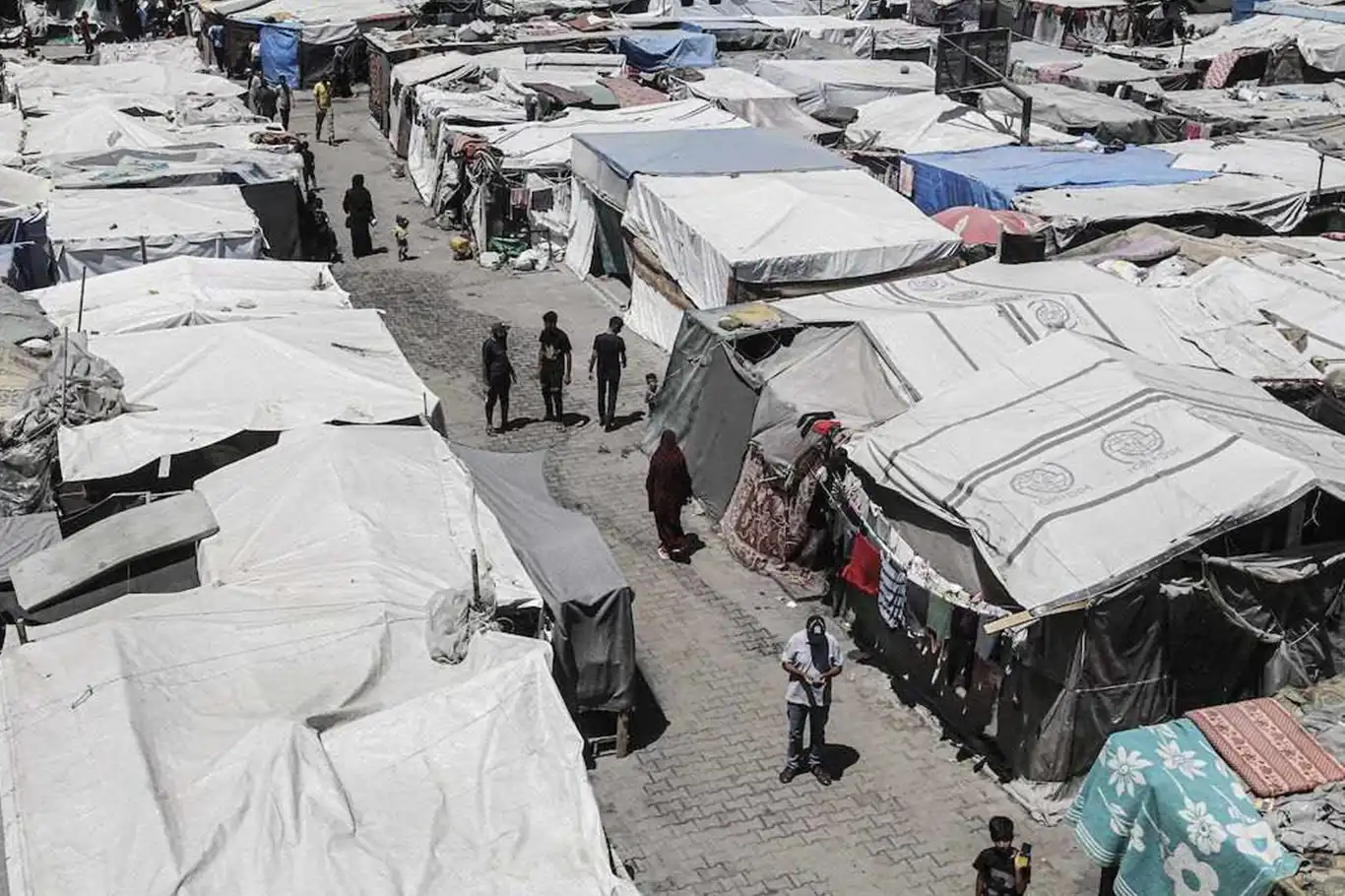High risk of famine persists across Gaza Strip, IPC report warns


The Integrated Food Security Phase Classification (IPC) has issued a dire warning regarding the severe risk of famine across the entire Gaza Strip, exacerbated by ongoing Israeli genocidal aggression and restricted humanitarian access.
According to the IPC report, 96% of Gaza's population faces acute food insecurity at crisis level or higher (IPC Category 3+), with almost half a million people enduring catastrophic conditions (IPC Category 5) through September 2024.
The report highlights that while the entire territory is classified in Emergency (IPC Phase 4), over 495,000 people (22% of the population) are experiencing catastrophic levels of acute food insecurity (IPC Phase 5). In this phase, households face extreme food shortages, starvation, and exhausted coping capacities. Additionally, 745,000 people (33%) are classified in Emergency (IPC Phase 4).
An IPC acute food insecurity analysis from February 2024 projected that famine would likely occur in the northern governorates by the end of May, assuming persistent conflict and low humanitarian access. Despite some disruptions, increased food deliveries and nutrition services in March and April temporarily alleviated conditions in the northern governorates.
However, the situation in the southern governorates deteriorated in early May. Over one million people have been displaced since the Rafah offensive began on May 6, following extensive air and sea attacks and expansion into Deir al-Balah, particularly Nuseirat Refugee Camp. Humanitarian access to the two million people in the southern governorates has been significantly reduced due to the closure of the Rafah border crossing and disruptions at the Karm Abu Salem crossing. This concentration of displaced populations in areas with diminished water, sanitation, hygiene (WASH), health, and other essential infrastructure heightens the risk of disease outbreaks, which could severely impact the nutritional and health status of large segments of the population.
The report reveals that more than half of the households had to exchange their clothes for money to buy food, and one-third resorted to picking up trash to sell. Over half of the households often have no food at home, and more than 20% go entire days and nights without eating.
The IPC report also notes the extensive damage caused by the ongoing conflict. By the end of May, approximately 60% of all buildings, including homes, shops, hospitals, and schools, as well as nearly 70% of WASH facilities, were damaged or destroyed. Additionally, 57% of agricultural land had been destroyed or severely damaged, further crippling the food production and distribution systems.
The shrinking humanitarian space in Gaza and the decreasing ability to safely deliver assistance pose significant challenges. The IPC warns that the recent improvements seen in April could be quickly reversed if the negative trajectory continues, further endangering the population's food security and survival. (ILKHA)
LEGAL WARNING: All rights of the published news, photos and videos are reserved by İlke Haber Ajansı Basın Yayın San. Trade A.Ş. Under no circumstances can all or part of the news, photos and videos be used without a written contract or subscription.
Russia carried out one of its largest drone assaults in recent weeks overnight, striking multiple Ukrainian regions with more than 140 attack and decoy drones, Ukrainian authorities confirmed on Sunday.
The leader of Yemen’s Ansar Allah movement, Sayyed Abdul Malik al-Houthi, delivered a powerful televised address condemning the recent Israeli airstrike on the Yemeni capital that martyred Prime Minister Ahmad al-Rahawi, several ministers, and other civilian officials.
President Donald Trump’s trade agenda suffered a major legal setback on August 29, 2025, when the U.S. Court of Appeals for the Federal Circuit ruled 7-4 that most of his global tariffs, including those targeting China, Canada, and Mexico, are illegal under the International Emergency Economic Powers Act (IEEPA).
Indonesian President Prabowo Subianto announced on Sunday that political parties have agreed to revoke several perks and privileges for parliamentarians, including excessive allowances and overseas work visits, following a week of nationwide protests and riots that claimed at least five lives.